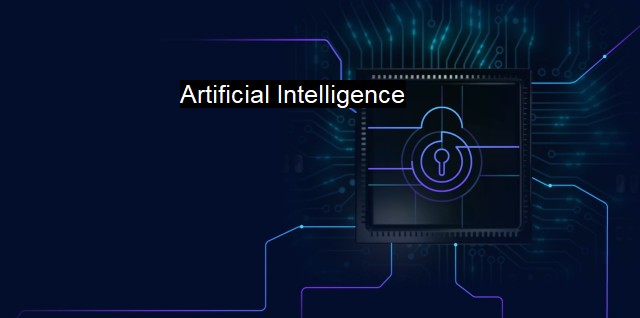What is Artificial Intelligence?
AI-Powered Cybersecurity: Revolutionizing Threat Detection and Mitigation
Artificial Intelligence, often abbreviated as AI, refers to the simulation of human intelligence in machines, especially computer systems. These processes include acquiring information and rules, reasoning through structured algorithms, and heading towards a definitive goal through self-correction and learning. Qualities such as these typically require human understanding and are deemed intelligent when displayed by machines.When we zoom into the cybersecurity realm, AI finds its application in a realm that is growing very intricate, very fast. AI can help by predicting, preventing, and responding to needless cyber activities that could potentially harm the system or the bigger network. AI can help automate repetitive tasks that security teams were previously burdened with. This scalability granted by AI is hugely beneficial to those charged with keeping networks and data secure.
Playing a critical role in altering our comprehension of cybersecurity, AI-enabled security systems are more proficient at detecting threats, alert squandering, and recognizing patterns that could denote a breach or hack might be taking place. By learning from the past and present activities, AI systems can identify potential threats and enhance existing security protocols.
A shoulders interlock of AI and cybersecurity is the cutting-edge field of AI antivirus. Benefits of using AI in antivirus protection have attracted a significant number of stakeholders due to its proactive, never-tiring, and adaptive learning approach to addressing system security issues. Many antivirus brands have begun implementing AI technologies into their software to gauge, learn, and stay ahead of constantly emerging and ever-evolving threats in real time.
An AI antivirus operates based on machine learning algorithms modeling potential malware behavior. These modeled behavior patterns help these software applications with real-time identification of current file actions that could betray unknown malware, and take immediate remediatory action at their ingress, oftentimes before they penetrate the system.
These set behavior patterns recognized in files can tip scientists off to hidden threats they might have otherwise missed, curbing threats before they spread. Meanwhile, the self-learning, self-sufficient AI antivirus can rely less on consistent system updates, new fixes, and signatures.
Classic signature-based antivirus stands to serve as an underpinning to the AI-Driven system's innate penetrability as it upkeeps the continuous battle against known threats. On the other hand, AI antivirus solutions can fight and predict current, emerging, and zero-day threats. Also, it necessitates little input from IT professionals sparing time for dealing with high-level security implications.
AI models can generate "false positives," mistaking safe files for threats. Consequently, rectifying these small classifications of mistakes calls for the use of AI technologies for antivirus protection that also take into account the technology's possible enclosed risks.
AI and cybersecurity converge with an aim to offer innovative solutions in the changing world of data security and protection. The realization of constant threat evolution has begun a trend for AI-assisted antivirus. In the cybersecurity epoch, embracing AI will inevitably translate into an improved defense against the burgeoning threat landscape. +#+

Artificial Intelligence FAQs
What is artificial intelligence and how does it relate to cybersecurity?
Artificial intelligence refers to the simulation of human-like intelligence in machines that are programmed to perform specific tasks without being explicitly programmed. In cybersecurity, AI is used to detect and respond to security threats faster and more accurately than humans.How does artificial intelligence assist antivirus software?
Antivirus software that incorporates AI can learn about new and evolving malware by analyzing data about known threats, and can then use that knowledge to identify and stop new and previously unknown threats. This helps to better protect computer systems and data from cyber attacks.Can artificial intelligence be used for ethical hacking?
Yes, AI can be used for ethical hacking, which involves using hacking techniques to identify and fix vulnerabilities in computer systems before they can be exploited by malicious hackers. AI can assist in identifying potential vulnerabilities and developing effective countermeasures to protect against cyber attacks.What are the potential risks associated with using artificial intelligence in cybersecurity?
One risk of AI in cybersecurity is that it may generate false positives or false negatives, leading to unnecessary alerts or missed threats. Additionally, malicious actors could use AI to develop more sophisticated and effective cyber attacks, making it imperative that cybersecurity measures continue to evolve and adapt to stay ahead of potential threats.| | A | | | B | | | C | | | D | | | E | | | F | | | G | | | H | | | I | | | J | | | K | | | L | | | M | |
| | N | | | O | | | P | | | Q | | | R | | | S | | | T | | | U | | | V | | | W | | | X | | | Y | | | Z | |
| | 1 | | | 2 | | | 3 | | | 4 | | | 7 | | | 8 | | |||||||